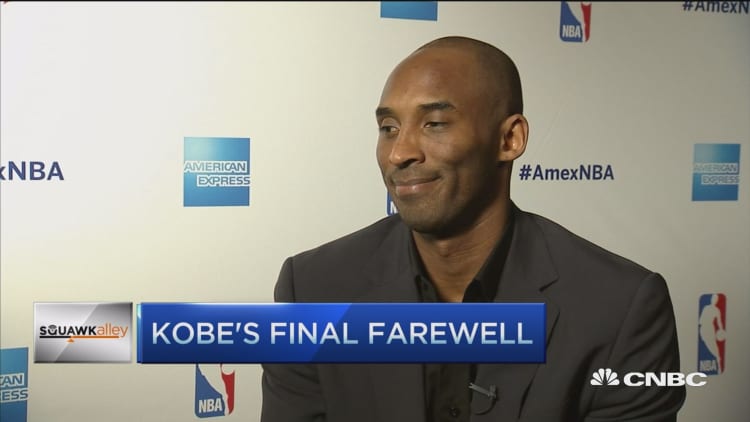When Kobe Bryant signed his first pro basketball contract with the Los Angeles Lakers in 1996, it made him a millionaire virtually overnight: The three-year contract would pay $3.5 million.
Bryant was 17 at the time, straight out of high school.
He would go on to earn a record $680 million over the course of his career, according to Forbes, which gave the now-retired player a unique perspective on wealth.
"When your Laker dream comes true tomorrow, you need to figure out a way to invest in the future of your family and friends," Bryant recently wrote in a letter to his younger self. "I said INVEST. I did not say GIVE."
"Purely giving material things to your siblings and friends may appear to be the right decision," the 37-year-old continued. "But the day will come when you realize that as much as you believed you were doing the right thing, you were actually holding them back."

Bryant stresses that handing money and material goods to people is not necessarily the best way to show your love, since it can negatively affect their work ethic and may even suppress their ambition.
"You will come to understand that you were taking care of them because it made YOU feel good; it made YOU happy to see them smiling and without a care in the world," he said. "While you were feeling satisfied with yourself, you were slowly eating away at their own dreams and ambitions. You were adding material things to their lives, but subtracting the most precious gifts of all: independence and growth."
If you come into a windfall, Bryant recommends helping the people around you by investing in their future rather than giving them handouts.
"Put them through school," he said. "Set them up with job interviews and help them become leaders in their own right. Hold them to the same level of hard work and dedication that it took for you to get to where you are now, and where you will eventually go."
"As time goes on," Bryant continued, "you will see them grow independently and have their own ambitions and their own lives, and your relationship with all of them will be much better as a result."


